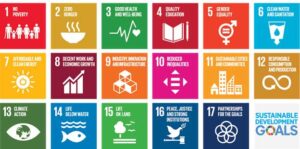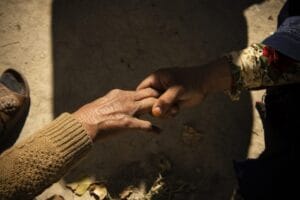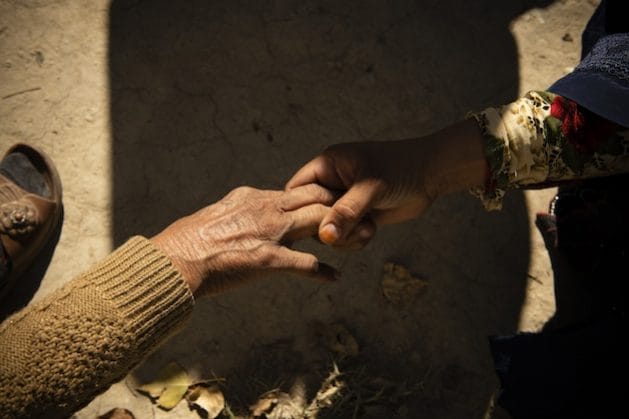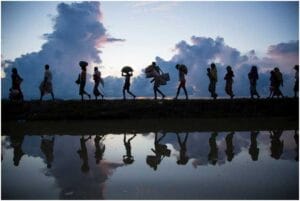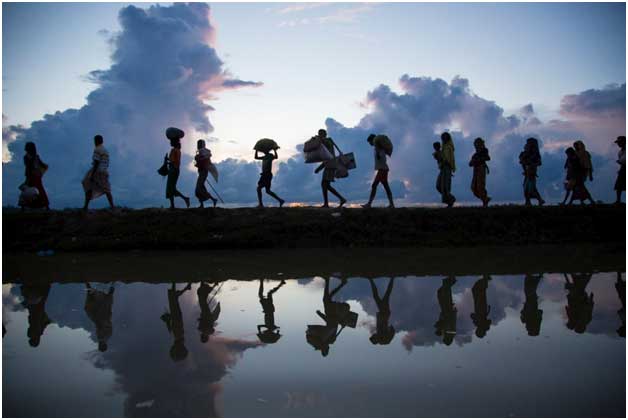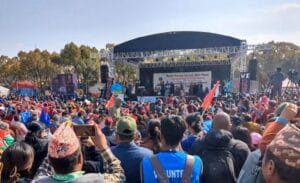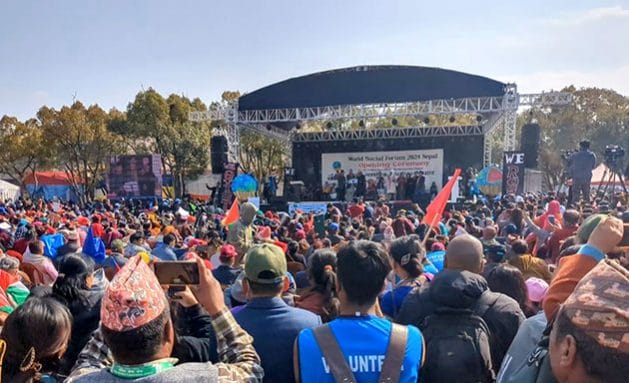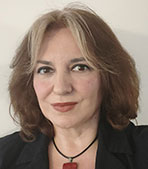
Civil Society, Crime & Justice, Featured, Gender, Gender Violence, Headlines, Health, Human Rights, Inequality, Latin America & the Caribbean, TerraViva United Nations
–
CIVICUS discusses abortion rights in Brazil with Guacira Oliveira, director of the Feminist Centre for Studies and Advice (CFEMEA). CFEMEA is an anti-racist feminist organisation that defends women’s rights, collective care and self-care and monitors developments in Brazil’s National Congress.
 In June, thousands of women took to the streets of São Paulo and other cities to protest against a bill that would classify abortion after 22 weeks as homicide, punishable by six to 20 years in prison. Protests began when the lower house of Congress fast-tracked the bill, limiting debate. Abortion is currently legal in Brazil only in cases of rape, foetal malformation or danger to the life of a pregnant person. The proposed bill, promoted by evangelical representatives, would criminalise people who have abortions more severely than rapists. Public reaction has slowed down the bill’s progress and its future is now uncertain.
In June, thousands of women took to the streets of São Paulo and other cities to protest against a bill that would classify abortion after 22 weeks as homicide, punishable by six to 20 years in prison. Protests began when the lower house of Congress fast-tracked the bill, limiting debate. Abortion is currently legal in Brazil only in cases of rape, foetal malformation or danger to the life of a pregnant person. The proposed bill, promoted by evangelical representatives, would criminalise people who have abortions more severely than rapists. Public reaction has slowed down the bill’s progress and its future is now uncertain.
How would this new anti-abortion law, if passed, affect women?
Currently, abortion is legal in Brazil only in cases of rape, danger to a pregnant person’s life and severe foetal malformation. However, current legislation doesn’t set a maximum gestational age for access to legal abortion. The proposed bill would equate abortion after 22 weeks of pregnancy with homicide, punishing the person seeking the abortion and the health professionals who perform it.
This would particularly affect girls, as over 60 per cent of rape victims are children under the age of 13. In more than 64 per cent of these cases, the rapist is someone close to the girl’s family, making it difficult to identify the rape and the resulting pregnancy.
Another perverse aspect of the problem is racial inequality. Forty per cent of rape victims are Black children and adolescents, and of those under 13, more than 56 per cent are Black girls. Of 20,000 girls under the age of 14 who give birth each year, 74 per cent are Black. In addition, Black women are 46 per cent more likely to have an abortion than white women. The passage of this bill would make Black women and girls even more vulnerable than they already are. The law should protect these women and girls, not criminalise them.
How has civil society mobilised against the bill?
CFEMEA has been monitoring threats to legal abortion for decades and is part of the National Front Against the Criminalisation of Women and for the Legalisation of Abortion. Threats increased with the rise of the far right to the presidency in 2018, and feminist movements mobilised over cases of girls who were victims of sexual violence and faced institutional barriers to accessing legal abortion.
In 2023, in response to regressive legislation, they launched the ‘A child is not a mother‘ platform, recently reactivated as the new anti-abortion bill was submitted as a matter of urgency. More than 345,000 people signed up to the campaign and sent messages to parliamentarians. They also applied pressure on social media through posts and hashtags such as #criançanémãe (#ChildNotMother), #PLdagravidezinfantil (#CongressForChildPregnancy) and #PLdoestupro (#CongressForRape).
We also campaigned through face-to-face actions and other collectively defined strategies, led mainly by state-level alliances against the criminalisation of women and for the legalisation of abortion. In May, we laid a symbolic wreath in front of the Federal Council of Medicine, which in April had published a resolution banning foetal asystole, a procedure recommended by the World Health Organization for legal abortions after 22 weeks. By doing so we symbolised our grief for all the women and girls whose lives are cut short due to lack of access to a legal abortion. We reenacted this outside the official residence of the President of the Chamber of Deputies, just before the fast-track request for the anti-abortion bill was approved, on the evening of 12 June.
The following day, the first public protests took place in several Brazilian state capitals. These continued over subsequent days, culminating in a nationwide action on 27 June. The issue is still on the agenda in July and demonstrations are still going strong.
Why is Brazil moving against the regional trend towards legalisation?
Brazil has seen advances by the religious fundamentalist far right since 2016, when President Dilma Rousseff was removed from office through a legal-parliamentary manoeuvre that amounted to a political coup. The violent ethnocentric, LGBTQI+-phobic, neopatriarchal and racist reaction intensified in 2018 with the victory of Jair Bolsonaro in an election marred by disinformation.
Conservatives view the rights to diverse and plural ways of life as a threat to their existence. In this sense, their regressive proposals are a direct response to women’s struggles against patriarchy and all forms of women’s oppression.
Even after its defeat in the 2022 presidential election, the far right has become stronger in the National Congress, where extremists have obtained majorities in both the Chamber of Deputies and the Senate. This has led to the revival of a bill known as the ‘Statute of the Unborn Child’, aimed at granting ‘personhood’ to the foetus in order to criminalise abortion.
Many factors explain the conservative reaction in Brazil and around the world. For fascists in power and in society, violence is justified against groups considered to be ‘enemies of the people’, which can include any dissenting voices – those of women, Black people, Indigenous peoples and LGBTQI+ people. In the case of women, they are trying to re-domesticate us, to send us back home, subservient to the command and judgement of patriarchs. Control over reproduction and our bodies is a crucial part of this strategy.
What are the forces for and against sexual and reproductive rights in Brazil?
The main force against sexual and reproductive rights is religious fundamentalism, which positions itself as a harbinger of control over women’s bodies and gender dissidents and is strongly represented in the National Congress. The defence of these rights lies in the progressive camp, represented by the political left and the feminist, women’s and LGBTQI+ movements.
But it’s worth noting that even with a Congress besieged by anti-rights groups, most people have a less punitive and more empathetic understanding of feminist struggles and women’s rights. A survey we carried out in 2023, in collaboration with the Observatory of Sex and Politics and the Centre for Studies and Public Opinion of the State University of Campinas, showed that 59 per cent were against the criminalisation and possible imprisonment of women who have abortions.
What are the main demands of the Brazilian feminist movement?
The feminist movement is plural and diverse, but what it has in common is the fight to end all forms of violence against women. CFEMEA seeks to transform the world through anti-racist feminism and by taking a stand against all gender inequalities and oppression. This is our position when we enter dialogue with society and make demands of governments. We demand public policies that reduce inequalities between men, women and people with other gender identities, considered in their intersectional dimensions of age, creed, ethnicity, nationality, physical abilities and race, among others.
A fundamental issue is the sexual and racial division of labour, a powerful structure that maintains and exacerbates the inequalities experienced by women. After all, the care work they do, despite being rendered invisible and devalued by patriarchal capitalism, is an indispensable condition for human life and the construction of collective good living. The manifesto of the Anti-Racist Feminist Forum for a National Care Policy, signed by dozens of movements and organisations, affirms the need for social reproduction activities to be recognised and shared by the state. This means that care work, which is currently unpaid and done at the family and community levels almost exclusively by women, must be effectively taken over by the state, because care is a human need.
We demand that governments allocate public investment to combat gender inequalities in areas as diverse as care, culture, education, the environment, health, justice, labour, leisure and wellbeing. It is the state, not the market, that can and must combat such inequalities.
Civic space in Brazil is rated ‘obstructed’ by the CIVICUS Monitor.
Get in touch with CFEMEA via its website or its Facebook or Instagram page, and follow @cfemea on Twitter.

